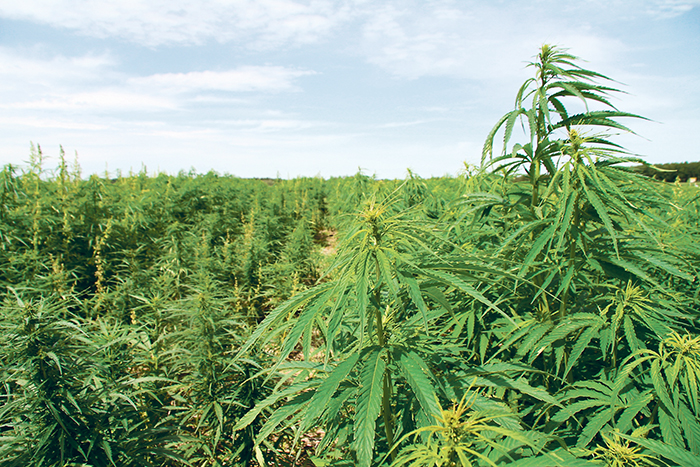Hemp is one of the few crops in Canada that doesn’t have a mandatory levy, but that may soon change.
In mid July, a group of hemp growers formally proposed the idea of creating a producer-controlled agency for promotion and research of industrial hemp.
The new agency would collect a levy when hemp is sold. The funds will support research and other activities, with the goal of benefitting producers and the entire hemp industry.
“Right now we don’t have an official checkoff,” said Nathan Nieboer, of Quattro Ventures, a group of family farms based in Bow Island and Burdett, Alta. “There is a voluntary checkoff that gets done through some (hemp) processors. (But) it’s not a stable source of funding to push the industry forward.”
Read Also

Chinese, Indian tariffs take toll on pea prices
The disruption of pea exports from Canada’s largest customers will likely result in slow pea exports for the remainder of the crop year.
Nieboer and others want to know if hemp growers support a check-off and a producer-controlled organization.
Producers that applied for a Health Canada licence to grow industrial hemp over the past three years will receive a survey. Growers can also go to www.hemptrade.ca and complete the survey.
Typically, grower associations or commissions that collect levies are provincial bodies. But the leaders of the new hemp agency have different plans.
“Hemp is currently produced in nine provinces across Canada, so we feel a national agency is the best approach for producers across Canada to invest in and grow their industry,” said Don Dewar, who farms near Dauphin, Man.
In a typical year, about 700 farmers receive a Health Canada licence to grow industry hemp and this spring an estimated 130,000 to 150,000 acres of hemp were seeded in Canada.
But in some provinces the number of growers is tiny. Therefore a provincial hemp association in Ontario, for example, doesn’t make financial sense.
“Combined, we have enough acres, but to run a provincial organization, would be very challenging,” Nieboer said. “The provinces have to get on side … to realize this makes sense.”
Canada’s hemp industry already has a national organization, the Canadian Hemp Trade Alliance. Its members include hemp processors, manufacturers, researchers, marketers and farmers. The CHTA, on its website, says its key functions are to “disseminate information, promote the use of nutritional and industrial hemp and co-ordinate research.”
Nieboer said the proposed promotion and research agency, controlled by producers, would work with the CHTA and support its activities.
But the main purpose of the proposed organization is to collect the levy and control spending of the check-off fund.
“I think the promotion and research agency would potentially fund initiatives that are done by the CHTA,” Nieboer said. “As well, if there is research and other funding that can be done, that producer board on the promotion and re-search agency (will) decide where those funds go.”
Nieboer and other producers supporting the hemp levy will study the results of the survey. If there is sufficient support for a checkoff, this fall they will submit an application to the Farm Products Council of Canada, which oversees national promotion and research agencies for farm products.
















